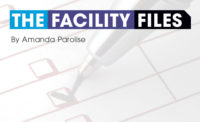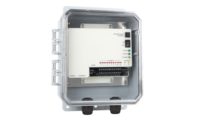The COVID-19 pandemic required individuals and businesses alike to change their traditional methods of operation in many ways. Even with lockdowns and travel restrictions, critical infrastructure still requires support from on-site field service technicians and engineers to keep the wheels of industry in motion. This is especially true in the boiler industry. Permanent installations as well as temporary rental boiler applications need to be commissioned by qualified service engineers. Existing installations require diagnostics and servicing when problems arise, and periodic maintenance is necessary for optimal operation of any boiler plant.
To further complicate things, there is a shortage today of qualified boiler service technicians and service engineers that can provide these tasks. American military branches, especially the U.S. Navy and Coast Guard, used to educate legions of candidates right out of high school to provide the specialized skills required of our industry. Unfortunately, the current modern naval fleet no longer relies primarily on fired, boiler-generated, steam-turbine propulsion and has evolved to primarily nuclear, diesel, and gas turbine technologies. As a result, the industry is no longer able to use this resource to help staff its workforces. To further add to this dilemma, the existing base of boiler technicians is an aging group; many are still working past normal retirement ages, while others have fully retired. Most high schools and trade schools are not currently providing the training, nor, subsequently, the quantity of candidates with the skill sets the industry requires. Although this needs to be covered in depth at a later forum, these are well-paying careers, with most technicians earning six-figure annual incomes. The industry needs to step up to the plate and develop programs to train the next generation of boiler technicians.
More stress is added to the already diminished, aging workforce, as many have not kept their skills up to date with current technology. Most boiler control systems (BCS) that are provided on new equipment today feature programmable logic controllers (PLC) or are dedicated function microprocessor-based. Even on older boilers, the outdated electromechanical, mechanical linkage-type systems have been replaced by much more energy-efficient and complex PLC-based systems. Consequently, the pool of qualified service technicians required to maintain these systems is reduced even further.
Fortunately, the latest boiler control technologies today help mitigate the aforementioned workforce issues. The primary service tool has now become the laptop computer, and many systems have had the ability for remote connectivity for some time now. However, prior to the COVID-19 pandemic, most industrial boiler plant operators were reluctant to connect their equipment to the internet due to fear of hacking and other malicious acts. Considering the large amounts of available energy at stake, this is a very legitimate fear. Even so, there are ways to safely alleviate these safety-related concerns and provide the services required remotely. Since the COVID era has begun, there has been a more general acceptance of remote diagnostics and servicing of boiler systems by plant owners. Hence, the rise of the latest class of boiler service technician: the remote service engineer (RSE).
RSEs are exactly as they sound, service engineers who provide service and support from a remote location rather than being physically at the facility and in front of the equipment. The safest method of connectivity for an RSE is an “air-gapped” network system, meaning the system is incapable of receiving communication from an external source. In an air-gapped network system, the BCS is only physically connected to the outside world via Wi-Fi, a local area network (LAN), or cellular modem, while an on-site service technician (OST) is physically at the boiler. OSTs don’t necessarily need to be highly skilled nor have PLC or advanced control system knowledge, but they must understand basic boiler and combustion safety. An OST will provide oversight for the safety of the system and be in direct communication with the RSE. Once the remote servicing is completed by the RSE, the control system would be “unplugged” from the remote network and operation would continue as normal.
Modern systems offer various levels of self-diagnostics and troubleshooting aides, and there are various methods of remotely connecting to a BCS in a safe manner. One method consists of the OST connecting his or her laptop to the BCS and the RSE connecting to that same laptop remotely, like how IT support connects to your office PC workstation or laptop. This would require the OST’s laptop be connected to the internet via Wi-Fi, a LAN, or cellular modem. The laptop is only connected to the BCS during servicing, and there are various methods of multi-level authentication protocols to be followed while connected. The laptop is then disconnected upon completion of the service.
Alternatively, there are various brands of industrial remote access gateway hardware available on the market today that can be permanently or temporarily installed and connected to the BCS. These gateways provide a virtual private network (VPN) with multilevel authentication for connection to the BCS local network, and they can connect to the internet via Wi-Fi, LAN, or cellular modem. The most common interface between the remote gateway and BCS would be an Ethernet switch. Unplugging the Ethernet cable to the gateway from the BCS Ethernet switch would disconnect, or air gap, the BCS from the internet. These systems can be configured so that remote devices can only “read” data from the BCS, allowing for remote diagnostics of the BCS only; changes to the configuration, or tuning, would require enabling “write” data security.
Since the onset of COVID, Nationwide Boiler has been able to use this technology for commissioning and monitoring with several large industrial users. A major paper mill in Canada needed to begin commissioning of a new 150,000 lb./hr. boiler right at the height of the travel restrictions this past year. In order to get a service engineer on-site, the Canadian government required two full weeks of isolation at an approved hotel, prior to being allowed to set foot on the job site. At the time, the U.S. also had similar requirements. Each roundtrip to the job site would have required the tech to be isolated for a month, nearly 30 days of unbillable time. With the help of a local, on-site tech, Nationwide was able to successfully commission and tune the boiler from its offices in Washougal, Washington.
More recently, Nationwide worked with a major petroleum refinery in the Gulf Coast for the remote monitoring of a large watertube rental boiler. Initially, the customer was reluctant to allow an RSE to connect to the OST’s laptop to assist with the commissioning of the boiler. After thoroughly discussing the various safety protocols in place, as well as the advantages to Nationwide’s remote monitoring workstation, the customer allowed remote connectivity, and the startup of the boiler was a success. In fact, the customer was so impressed that they requested that Nationwide set up a remote services agreement to monitor the boiler throughout the duration of the rental project.
Remote servicing solves some of the workforce problems the boiler industry faces today, and the use of RSEs can be a force multiplier for any boiler service organization. Experienced RSEs can work with various OSTs at any location on the planet that has internet and cellular connectivity, without the need for travel. Boiler systems can be monitored remotely, and operators can be notified of potential problems before the system even faults. While not every problem can be solved remotely, the process of troubleshooting is minimized with remote monitoring, and some issues can actually be resolved from a remote location.
It has been said that “necessity is the mother of all inventions,” and the COVID crisis has brought about many changes to the way we do business. As we get past the restrictions that came along with the COVID-19 pandemic, surely some of these changes will stick.




